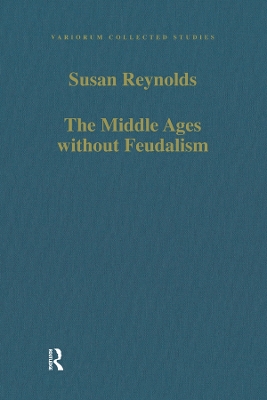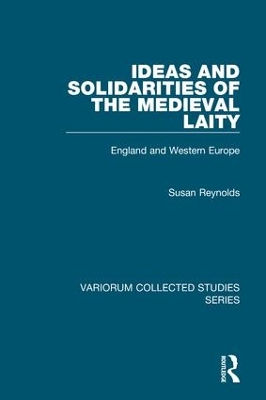Variorum Collected Studies
2 total works
This volume brings together articles (including two hitherto unpublished pieces) that Susan Reynolds has written since the publication of her Fiefs and Vassals (1994). There she argued that the concepts of the fief and of vassalage, as generally understood by historians of medieval Europe, were constructed by post-medieval historians from the works of medieval academic lawyers and the writers of medieval epics and romances. Six of the essays reprinted here continue her argument that feudalism is unhelpful to understanding medieval society, while eight more discuss other aspects of medieval society, law, and politics which she argues provide a better insight into the history of western Europe in the Middle Ages. Three range outside the Middle Ages and western Europe in considering the idea of the nation, the idea of empire, and the problem of finding a consistent and comprehensible vocabulary for comparative and interdisciplinary history.
This book contains essays written over the past 25 years about medieval urban communities and about the loyalties and beliefs of medieval lay people in general. Most writing about medieval religious, political, legal, and social ideas starts from treatises written by academics and assumes that ideas trickled down from the clergy to the laity. Susan Reynolds, whether writing about the struggles for liberty of small English towns, the national solidarities of the Anglo-Saxons, or the capacity of medieval peasants to formulate their own attitudes to religion, rejects this assumption. She suggests that the medieval laity had ideas of their own that deserve to be taken seriously.

